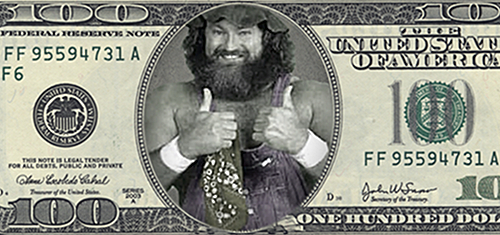 The Poker Players Alliance (PPA) was in a Kentucky court on Wednesday, where it was accused of trying to save Amaya Gaming half a billion bucks.
The Poker Players Alliance (PPA) was in a Kentucky court on Wednesday, where it was accused of trying to save Amaya Gaming half a billion bucks.
On Nov. 20, Franklin Circuit Court Judge Thomas Wingate ordered Amaya and its PokerStars subsidiary to pay the state $290m for serving Kentucky players without the state’s permission in the years before Stars exited the US market. The state is pushing Wingate to grant them treble damages, potentially bringing Amaya’s bill to over three quarters of a billion dollars.
Kentucky filed the civil suit in 2010 against multiple operators, including PartyGaming, using a century-old law that allows third parties to file claims on illegal gambling losses suffered by other players. Bwin.party digital entertainment, which was preparing to enter New Jersey’s regulated online gambling market, chose to settle the PartyGaming suit in 2013 by cutting Kentucky a check for $15m, which suddenly looks like a bargain.
Last week, the PPA announced it would seek to intervene in the PokerStars suit on behalf of the state’s estimated 14k poker players. On Wednesday, PPA attorney Don Cox appeared before Wingate to argue that if anyone was to reap the benefits of this suit, it should be the players who actually lost the money, not the state and its ambulance chasing lawyers (we’re paraphrasing).
William Hurt, a non-Oscar-winning attorney hired by the state to handle the civil suit, pointed out that not one of these 14k players had bothered to come forward in the years since the state filed its claim. Cox somewhat disingenuously claimed that players hadn’t come forward because they weren’t aware of the suit until Wingate’s judgment was announced last month (which really doesn’t speak well of the PPA’s mass communication skills).
Hurt went on to claim that the PPA had only sought to intervene in the suit because it was being paid by Amaya/Stars, a claim Cox rejected, saying there was “no evidence in the record” indicating any such collusion.
Hurt further claimed that the PPA/s intervention was a technical ruse intended to thwart the state’s pursuit of treble damages, as that century-old law doesn’t allow a group like the PPA to seek treble damages. The Herald-Leader quoted Hurt saying that the PPA’s intervention was Amaya’s attempt “to redo this case and start it all over as a different case after they have lost.”
Hurt believes Wingate erred in his original calculation, suggesting that the state was owed only $250m, although that treble damages nonsense would bring the total tab to $750m. Wingate, who has traditionally sided with the state on its multitude of online gambling extortion schemes, has already indicated that he’s leaning towards granting the state’s treble damages request.
Wednesday’s hearing came and went without Wingate issuing a ruling on the PPA’s request to intervene. Regardless of how much Wingate chooses to demand from Amaya or to whom the money is paid, the losing side is expected to appeal the ruling, meaning the ultimate outcome may not be known for years.
However long it takes, Amaya investors will be bracing for a potential nine-figure hit. Stars’ previous owners at the Rational Group could afford to ignore such state-sponsored blackmail when PokerStars wasn’t planning on establishing a footprint in regulated US state markets. But with PokerStars planning to launch in New Jersey in 2016 and in other US states as the market develops, Amaya can’t afford to have unpaid hillbilly hush money on their books.
